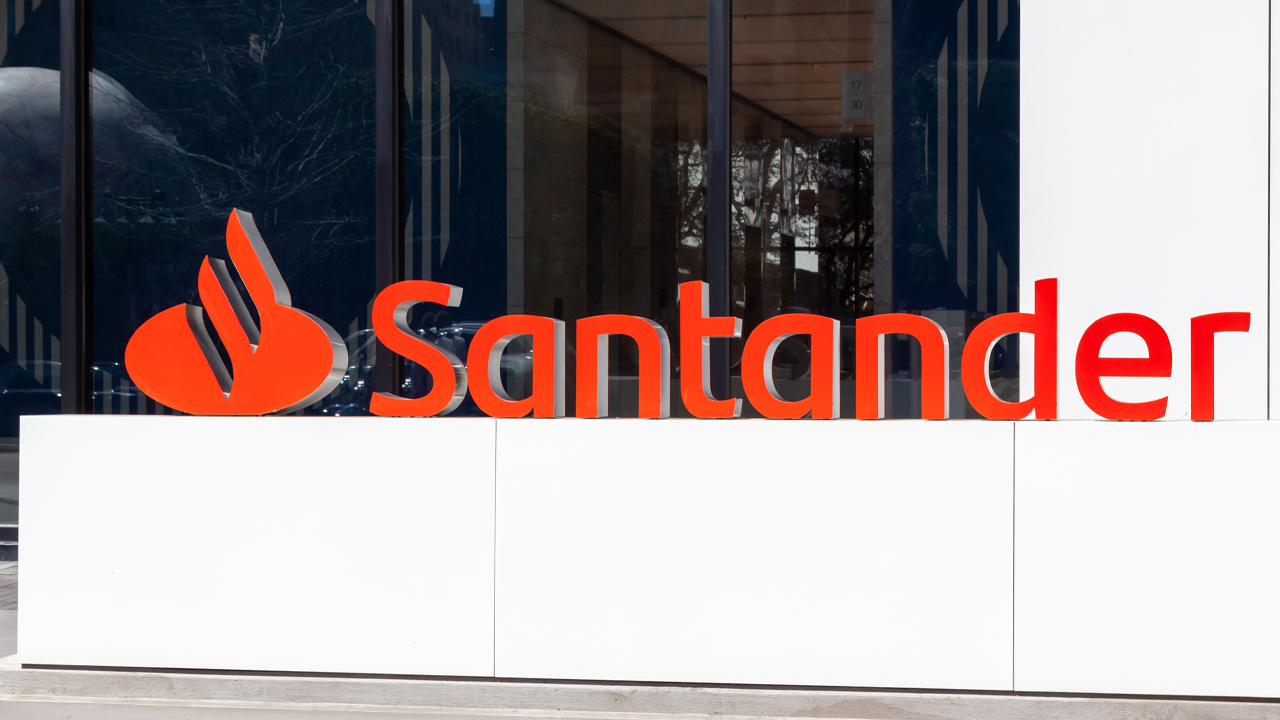by Jamie Redman
On Nov. 3, Santander UK, the subsidiary of the Spanish financial giant Banco Santander, S.A., published a notice that says “investing in cryptocurrency assets can be high risk.” Furthermore, the British bank also imposed a limit on cryptocurrency exchanges using the firm’s mobile and online banking services.
Santander UK has published a new update concerning cryptocurrencies and it warns that investing in such financial vehicles can be “high risk.” The bank notes that the U.K.’s Financial Conduct Authority (FCA) has warned the public about such risks and the financial institution wants to do everything it can to “protect” customers. “[Santander UK feels] that limiting payments to cryptocurrency exchanges is the best way to make sure your money stays safe,” the bank explains.
The financial institution has placed a £1,000 ($1,120) limit per transaction, and a total limit of £3,000 ($3,360) in “any rolling 30-day period.” Despite the bank’s warning, Santander-associated businesses are dedicating lots of effort toward tokenization, commodity tokens, and cryptocurrency services in Brazil. The Spanish banking giant has also crafted a bitcoin (BTC) exchange-traded fund (ETF) in Spain.
Santander UK, however, must operate under the United Kingdom’s financial laws and other Santander-associated businesses navigate differently. The notice posted to the bank’s web portal says that customers can still get payments from crypto exchanges into their accounts, but it notes more changes could come in the future.
“We’ll be making more changes to limit or prevent payments to crypto exchanges in the future, though we’ll always let you know before we make these changes,” Santander UK’s update discloses.
The bank also highlights the largest crypto exchange by global trade volume, Binance, in the update. Santander UK has special restrictions when it comes to dealing with Binance. “We’ll continue to stop payments being sent to Binance,” Santander UK says. The bank also shares an FCA warning written about Binance.
“You can still withdraw any money you have with Binance into your Santander account,” the update from Santander UK concludes.
What do you think about Santander UK imposing limits on crypto exchange transactions? Let us know what you think about this subject in the comments section below.
Jamie Redman is the News Lead at Bitcoin.com News and a financial tech journalist living in Florida. Redman has been an active member of the cryptocurrency community since 2011. He has a passion for Bitcoin, open-source code, and decentralized applications. Since September 2015, Redman has written more than 6,000 articles for Bitcoin.com News about the disruptive protocols emerging today.
Image Credits: Shutterstock, Pixabay, Wiki Commons, Editorial photo credit: JHVEPhoto / Shutterstock.com
Disclaimer: This article is for informational purposes only. It is not a direct offer or solicitation of an offer to buy or sell, or a recommendation or endorsement of any products, services, or companies. Bitcoin.com does not provide investment, tax, legal, or accounting advice. Neither the company nor the author is responsible, directly or indirectly, for any damage or loss caused or alleged to be caused by or in connection with the use of or reliance on any content, goods or services mentioned in this article.
Oman to Incorporate Real Estate Tokenization in Virtual Assets Regulatory Framework
Real estate tokenization is set to be incorporated into Oman Capital Markets Authority (OCMA)’s virtual asset regulatory framework. According to an advisor with the authority, the tokenizing of real estate will open investment opportunities for local and foreign investors. Real … read more.
Ripple CEO: SEC Lawsuit Over XRP ‘Has Gone Exceedingly Well’
The CEO of Ripple Labs says that the lawsuit brought by the U.S. Securities and Exchange Commission (SEC) against him and his company over XRP “has gone exceedingly well.” He stressed: “This case is important, not just for Ripple, it’s … read more.
Check all the news here
Author
Administraroot

